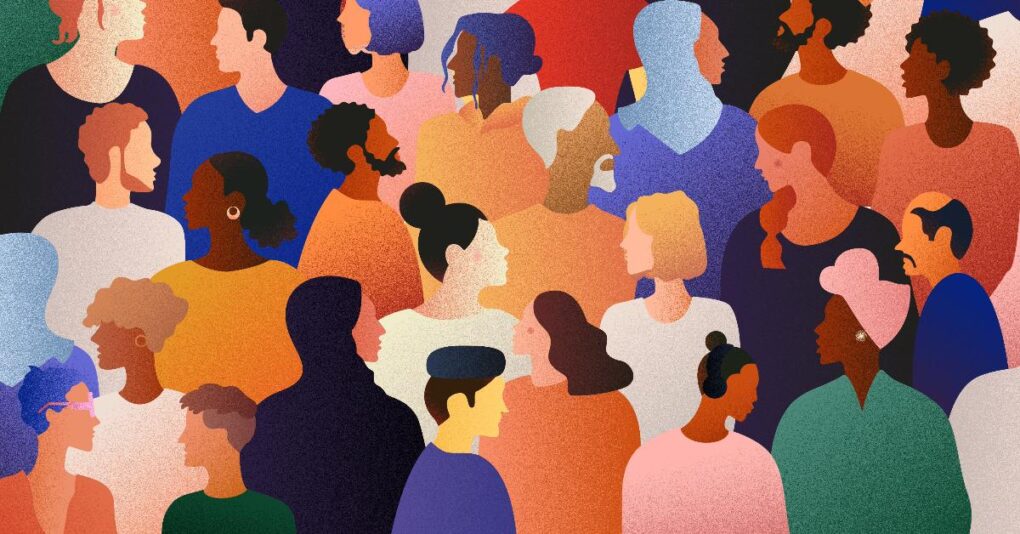
California’s choice to grant reparations to black Americans has galvanized activists across the globe. Activists believe that doing so will correct the black-white wealth gap. Guaranteeing that blacks are on par with whites, nevertheless, is an unusual objective, since East Asians outperform whites on several metrics, consisting of education. Rather than contrasting blacks with whites, political activists need to investigate why blacks have lagged behind relative to other groups.
The issue is that rankings of financial and social standing position black Americans at the bottom of the pile. So, the fixation with closing the black-white wealth gap is odd because many groups carry out better than blacks financially and professionally. For that reason, distinctions between blacks and whites obscure the precarious position of black Americans.
Other groups outearn white Americans, so racism stops working to explain the underperformance of black Americans. Neither can discrimination be conjured up as a description because anti-black racism has become a cardinal sin in The United States and Canada. In reality, brightness indicates such contempt that white activists pretend to be black or native American. Further groups with a history of discrimination like Italian and Irish Americans have actually achieved parity with ethnic Americans.
Similarly, Asian Americans are singled out for their successes however their course to prosperity was not paved with gold. The Chinese and Japanese withstood discrimination in labor markets. For Japanese males, the effects of internment were so relentless that they suffered decreased earnings by as much as 9-13 percent, years after the policy retired. Similarly, South Koreans are appreciated for their service acumen, but they encountered obstacles on the journey to success. Many Korean immigrants with advanced degrees were left out from high-paying jobs due to language barriers and this led them to pursue entrepreneurship rather of white-collar work.
Yet the fast ascension of these groups shows that individuals do attain regardless of discrimination. Even more unexpected is that lots of minorities experienced mobility before ending up being professionally effective. Groups, like the overseas Chinese, Middle Easterners in Africa and the Jews became economically accomplished prior to their sojourn into elite occupations. For example, West Indian blacks rose to such prominence in company in the early twentieth century that they were referred to as the black Jews and they did so in a period sustained by anti-black bigotry. Currently, Nigerian Americans are getting a reputation for professional eminence, regardless of research study revealing that they experience discrimination and are much more most likely to face ethnic discrimination than other black immigrants
Although, black Americans have actually produced gains over the past sixty years some think that their progress is too slow. But the lengthy rate of black development is sluggish for a reason. An excellent work ethic is an effective tool for enhancing the potential customers of minority groups. Some black Americans are prospering, but usually American blacks are not as competitive as whites or East Asians. Reports even compete that in spite of the propensity to use blacks, companies detest their poor work ethic. Large swathes of American blacks do not have the soft abilities to allow their success in the operating world.
Sociologists have discussed cultural obstacles to operate in the black American community, yet pundits pretend as if they do not matter. Too many blacks are enmeshed in a working-class subculture that does not esteem professional worths. A counterculture exists that venerates the materialism and thuggery of hood life at the expenditure of professional success. In these neighborhoods, role models are not professionals or upstanding residents, however rather pimps and gangsters.
According to William Julius Wilson, numerous African American guys are victims of a corrosive sub-culture that prevents them from accomplishing success in the formal economy. This sub-culture foments low trust and encourages black males to forecast aggressiveness as a tool to amass respect. Furthermore, Elijah Anderson’s landmark ethnography on inner-city joblessness asserts that numerous jobless young black guys are uninspired and withdrawn in achieving a task, especially low paying tasks for which they qualify.
For people possessing the hood state of mind, work is not honorable, since getting rich quickly is the objective. Principles such as saving and long-term orientation are foreign. This outlook threatens the progress of black Americans since it has actually ended up being cultural, so even when they get away abject neighborhoods, the culture embedded by the hood mindset will still thrive. Thus issues impacting black ghettoes likewise plague middle-class black communities.
Furthermore, as a group black Americans are less productive than whites, save less, and are used in lower-paying jobs due to lower education levels. Black Americans will remain a permanent underclass unless white liberals and black activists change their rhetoric. Black Americans have actually been hearing that they are victims of white supremacy for years, yet this has not ameliorated their condition. Rather, the response lies in pursuing brand-new strategies like those that have assisted over discriminated-against groups– such as the Japanese, Jews, and Nigerian Americans– conquer countless barriers and construct wealth as neighborhoods.
The typical social benefit policies have failed, and lavishing black neighborhoods with government cash enables progressive whites to feel great about themselves, but unless black Americans can enhance their own communities, these tasks have gone and continue to go no place. Such project failures may even embolden racists who believe black individuals are inferior. Black Americans deserve much better.

